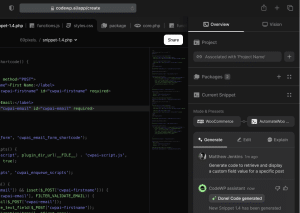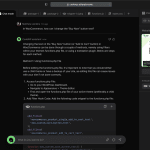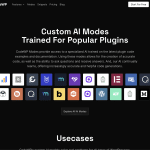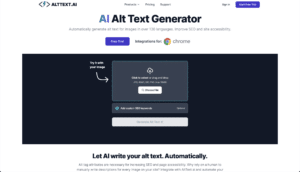Are you struggling to boost sales with your WooCommerce store?
Your checkout page might be the culprit.
Let’s face it - WooCommerce’s default checkout is not up to par with Shopify. It doesn’t look secure, user-friendly, and aesthetically pleasing.
But there’s good news.
With the right plugin, you can enjoy the best of both worlds - WooCommerce’s free and open-source nature and Shopify’s smooth checkout.
This article will show you how to add a Shopify checkout for WooCommerce right out of the box. We’ll also share some tips on how to optimize your checkout page to keep your customers coming back for more.
What’s Wrong With WooCommerce’s Default Checkout Page?
There are so many reasons why WooCommerce's default checkout page is not so great.
First of all, it’s not optimized for conversions. The checkout form looks very generic and comes with too many fields at once. It lacks the aesthetics and functionalities that encourage customers to click that ‘Buy’ button.

WooCommerce Default Checkout Page by Business Bloomer
We also noticed that the layout is not optimized for mobile devices. This causes frustration for users with smaller screens.
Clearly, the default page lacks features that modern consumers expect. Unfortunately, this leads to an increase in abandoned carts and a loss in revenue.
Here are the other limitations we’ve found on the default WooCommerce checkout:
- It lacks a progress indicator, leaving customers without a clear sense of the checkout journey
- It doesn’t offer express checkout options
- It doesn’t have a feature to recover abandoned carts
- It doesn’t support address auto-completion which might lead to input errors and slower checkout
- Its checkout flow doesn’t give the best shopping experience for customers
- You can’t split the checkout form into multiple steps
- You can only add custom codes to reorder or customize fields which might not be the best option for non-technical users
Why Shopify’s Checkout is Better than WooCommerce
Shopify is WooCommerce’s strongest rival.
But unlike WooCommerce, Shopify’s checkout page looks modern, clean, and clutter-free. Online store owners can easily sell both digital and physical products without writing a single line of code.
The added bonus - its layout is mobile-friendly. For us, this feature is essential because most customers prefer shopping on their phones over desktops for convenience. In fact, 65.7% of the total e-commerce sales around the world come from mobile.

Shopify Checkout Page by AfterSell
Now, let’s take a quick look at some of Shopify’s advanced features and why its checkout is superior to WooCommerce:
- Clean and Intuitive Layout: Shopify's checkout page is designed to be clutter-free, with no distractions like navigation menus, which can help keep the focus on completing the purchase.
- Progress Indicator: This helps customers know their place in the checkout process. It’s divided into three logical steps to reduce information overload and cart abandonment.
- Express Checkout Options: Shopify integrates express checkout options like Apple Pay, Google Pay, and PayPal Express to speed up the checkout process.
- Cart Abandonment Recovery: Shopify collects the customer's email at the beginning of the checkout process for easy follow-up in case of cart abandonment.
- Detailed Breakdown of All Costs: Shopify provides a detailed breakdown of the order total, including images and quantities of the items, which helps customers review their purchase before finalizing.
- Google Address Autocomplete: This feature reduces errors in the address and has been shown to decrease checkout time by 20%.
- Multi-Step Field Preview Option: Customers can preview and confirm the information they've entered at each step, with the option to easily navigate back to correct any mistakes.
Our Top Shopify-Style Checkout Plugins for WooCommerce
WooCommerce remains a go-to choice for many businesses because it’s cheaper, more flexible, and integrates well with WordPress.
Thankfully, you can improve your WooCommerce’s default checkout without the need to switch to Shopify.
Optimize your store’s checkout experience by trying one of these plugins:
1) CheckoutWC

CheckoutWC has massive features to upgrade your boring WooCommerce into a high-converting checkout page.
Its highlights include a side cart that allows quick and easy edits without the need to navigate away from the current page.
Express checkout options like Apple Pay and Google Pay are integrated into the page to speed up transactions.
Aesthetics-wise, the plugin offers beautiful, customizable, and mobile-responsive templates to ensure that your checkout is as visually appealing as it is functional.
CheckoutWC also supports a variety of product types and delivery methods to meet the unique needs of every store.
With all these features, it’s no surprise that it has been a go-to plugin amongst business owners.
Key Features:
- Customizable, mobile-responsive checkout templates
- Built-in side cart for a seamless shopping experience
- Express checkout options with popular payment gateways
- Order bumps to increase average order value
- Support for WooCommerce Subscriptions
- Abandoned cart recovery emails
- Post-purchase upsells
- One-page or multi-step checkout flow
- Address autocomplete and zip code validation
Pros:
- Enhances user experience with a streamlined checkout
- Increases conversion rates by reducing friction
- Offers a variety of customization options
- Supports a wide range of payment solutions
Cons:
- May require a learning curve for setup and customization
- Templates might slow down your site’s loading speed on some browsers
Pricing:
- Basic plan starts at $9 per month. CheckoutWC also offers a 7-day free trial and a 100% money-back guarantee.
2) FunnelKit

FunnelKit, formerly known as WooFunnels, creates frictionless checkouts by replacing the default with modern, optimized pages.
Some features we particularly love are the integrated express pay options and address autocomplete which simplifies the purchase process. FunnelKit also helps you increase your AOV (average order value) by adding one-click upsells and relevant order bumps directly on the checkout page.
The plugin comes with opt-in pages to help grow your email list. A/B testing is overall straightforward so that you can refine your sales funnels for maximum efficiency.
You can even access your funnels' performance which we believe is a crucial asset for data-driven decisions to boost your sales.
Key Features:
- Ready-made opt-in and landing page templates
- Supports single or multistep checkout pages
- Displays customized offers during the checkout process
- One-click upsells after a purchase
- Real-time analytics for funnel performance
- A/B testing mechanism to test page elements and offers
- Integrates with a lot of popular CRM tools, WordPress builders, and third-party apps
Pros:
- Provides a wide range of tools for optimizing the checkout process
- Designed for ease of use with a modern aesthetic
- Freemium versions available
Cons:
- Lacks transparency for upcoming features and updates
- Its tiered pricing model may be limiting for businesses with multiple websites
Pricing:
- Basic plan starts at $99.50 per year. All plans come with a 14-day money-back guarantee.
3) WooCommerce Fast Cart

WooCommerce Fast Cart elevates the shopping experience by adding a floating cart icon with customizable color and placement. It appears when items are added to the cart so that users can quickly access the checkout page.
The direct checkout option opens a popup where customers can easily fill in their details and pay right away. Most importantly, it only loads the mini cart after the entire page has loaded. This means it won’t affect your site’s performance.
Fast Cart supports all payment gateways configured in WooCommerce. It works with a variety of themes and plugins, too. If you’re looking for a versatile solution to enhance your site’s WooCommerce checkout, you might want to consider this plugin.
Key Features:
- Instant access to the cart or checkout from any page
- Fully customizable button colors, design, and layout
- Instant on-page checkout to complete their orders without leaving the page
- Flexible control over the cart's appearance and functionality
- Increases average order value by cross-selling related products in the popup WooCommerce cart
- Mobile-responsive and works well with any theme
- Supports all popular payment gateways, including PayPal, Stripe, Amazon, and Braintree
Pros:
- Carts look clean and modern with lots of customization options
- Intuitive and easy to implement
- Reduces abandoned carts with a single on-page order
- Offers great support
Cons:
- Pricing can be expensive for some users
Pricing:
- Pricing starts at $89 per site billed annually. You can also purchase a lifetime license which starts at $349 per site.
4) WooCommerce Blocks

WooCommerce Blocks, a plugin developed by Automatic, offers 20 built-in blocks to transform your checkout into a smooth, almost effortless process. You can customize these blocks to fit the needs of your WooCommerce store.
One of its best features is the checkout block. Add this to your page to keep your shoppers interested from browsing to checkout. The layout and content sections are a bit similar to Shopify, too, which makes the purchase experience easier and more pleasant for customers.
Key Features:
- Comes with 20 built-in blocks to display products and categories in a more visually appealing and user-friendly manner
- WooCommerce analytics and reports for monitoring your store’s performance
- Simplified checkout block
- Multi-step checkout option
Pros:
- Awesome support from the developers
- You can change the quantity in the cart on the checkout page
- It’s completely free
Cons:
- Lack of customization options on the cart page
- Some users reported compatibility issues with certain plugins or themes
Pricing:
- Free
5) Flux Checkout for WooCommerce

If you want a minimalist and app-like interface, Flux Checkout can be a great option.
What makes Flux Checkout great for WooCommerce is its distraction-free, multi-step checkout process. Having clear, manageable steps doesn’t only speed up transactions but also keeps customers focused on completing their purchases. This allows customers to review and edit their cart items easily.
On top of its simplicity, we greatly appreciate the plugin’s capability to address common e-commerce challenges. This includes reducing cart abandonment and improving your store’s conversion rates.
Overall, we find Flux Checkout a simple solution to revamp WooCommerce's default checkout page.
Key Features:
- Customizable checkout fields
- One-click checkout allows customers to complete a purchase quickly and easily
- Optimized for mobile devices
- Inline validation ensures the checkout form is filled in correctly
- Analytics and reporting capabilities for tracking sales and site performance
- Compatible with most payment gateways
Pros:
- Offers pre-built templates with lots of customization options
- Intuitive interface and functions
- You can build a distraction-free checkout page
Cons:
- Getting a license for multiple sites can be expensive
- You can’t create a single-page checkout
Pricing:
- License price starts at $99 per year per site
6) CartFlows

CartFlows is a robust funnel-building plugin for WordPress. You can create high-converting sales funnels through its one-click upsells, down-sells, and order bumps.
If you’re already a fan of page builders like Elementor, Divi, and Beaver Builder, then customizing a checkout page with CartFlows should be fairly easy.
One feature we particularly like is its dynamic offer system. This means product offerings are tailored based on your customer’s behavior. Additionally, CartFlows includes a cart abandonment feature to capture lost sales and integrates with SureTriggers to automate your workflows.
While CartFlows excels in funnel creation and customization, it does have some limitations. This includes limited CRM integration and data visualization.
However, it’s a compelling choice for small to medium-sized businesses looking for an affordable and versatile WooCommerce checkout and funnel builder.
Key Features:
- Pre-designed templates optimized for conversion
- One-click upsell and downsell to increase the total order value
- Optimized checkout process to reduce cart abandonment and increase conversions
- Cart abandonment recovery feature to capture potential lost sales
- Canvas mode which provides a visual flowchart of the checkout process
- Seamless integration with popular page builders
Pros:
- It has order bumps to encourage customers to make additional purchases
- Its templates are highly customizable with most page builders
- It dynamically presents the most relevant offers to customers, both in pre and post-purchase
- Offers a forever free version
Cons:
- The most powerful features are only available on the pro version
- It doesn't have built-in advanced email marketing features
- Limited CRM integration and data visualization
Pricing:
- Their plan starts at $79 per year per site. Free version is also available.
7) Fluid Checkout

Fluid Checkout addresses the limitations of the default WooCommerce checkout by offering a more optimized, conversion-friendly workflow.
The plugin boosts customer trust by adding recognized payment gateway icons and security badges to the checkout page.
Fluid Checkout has massive features, but we noticed it shines best with its PRO version. Some of its attractive features include an express checkout for rapid transactions, an address book for easy management of multiple shipping addresses, and cart page optimization to automatically update changes without the need for manual refresh.
Furthermore, it enhances the order confirmation page by offering gift options with personalized messages. This makes it a great addition to any WooCommerce site aiming for growth and customer satisfaction.
Key Features:
- Offers both a multi-step and single-step checkout
- Displays trust symbols on the checkout page
- Comes with a selection of design templates to match your website's style
- Includes a local pickup functionality
- Order confirmation page comes with a visual progress indicator
- Integrated coupon code field prevents customers from leaving the checkout to search for coupons
Pros:
- It links orders to existing customer accounts without requiring login
- Customers can log in from the checkout page without navigating away
- Customers can save multiple addresses directly from the checkout page
- You can hide optional checkout fields
Cons:
- Requires some setup and customization to align with the specific needs of your store
- Advanced features, like express checkout and address book, are only available in the Pro version
Pricing:
- Price starts at 99 EUR per year per site. Free version is also available
Tips to Optimize Your Checkout Page
According to an interview with Dor Mizrachi, Wix’s e-commerce product manager, one of the reasons why two-thirds of all carts get abandoned is user friction.
So, it’s crucial for store owners to optimize their checkout page, regardless of the plugin or platform they use.
Below, you'll find a list of actionable tips to create a smoother and more efficient checkout experience for your customers.
- Simplify the process: Limit the number of steps required to complete a purchase.
- Display security badges: Let customers know that your site is trustworthy and secure.
- Offer multiple payment options: Cater to customer preferences with a variety of payment methods.
- Add a progress indicator: Let customers know how far they are in the checkout process.
- Enable guest checkout: According to a survey by Baymard, 37% of customers abandon their cart because they are asked to create an account. You can address this issue by allowing customers to purchase without creating an account. Or, simplify the account setup for your customers to make it hassle-free.
- Optimize for mobile devices: Ensure the checkout process is easy on smaller screens.
- Enable autofill fields: Save time with autofill for returning customers.
- Keep distractions to a minimum: Remove unnecessary elements that could divert attention from completing the purchase.
- Test and refine: Continuously test different elements and make improvements based on customer feedback.
Shopify Checkout for WooCommerce - FAQs
How do I make my WooCommerce checkout page like Shopify?
You can give your WooCommerce checkout page a Shopify-like feel by using one of the checkout plugins we've suggested in this article. They're simple to set up and can quickly revamp your checkout experience.
How do I use Shopify checkout for WordPress?
Shopify is a standalone, hosted platform, so its checkout system can't be directly integrated with WordPress. However, you can use WooCommerce on your WordPress site and install checkout plugins that mimic the Shopify checkout experience.
What is the difference between Shopify and WooCommerce checkout?
Shopify's checkout is a proprietary, out-of-the-box solution. WooCommerce checkout, on the other hand, requires additional plugins and custom development to match Shopify's streamlined experience.
Wrapping It Up
Shopify obviously takes the lead with its advanced checkout features. But it might not work for everyone.
First, it’s not as flexible as WooCommerce. Its customization options are limited. And its pricing can be steep for small and medium businesses.
If these points resonate with you, then WooCommerce might just be the solution you need.
With the plugins discussed in this article, you can easily enhance your WooCommerce checkout without switching to Shopify.
So, give these plugins a try, and let us know in the comments how they’re working for you.










